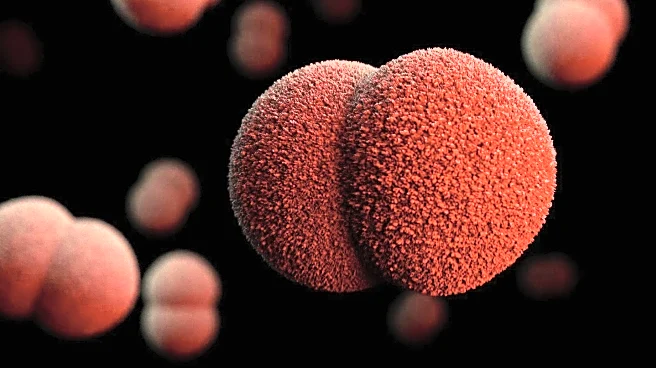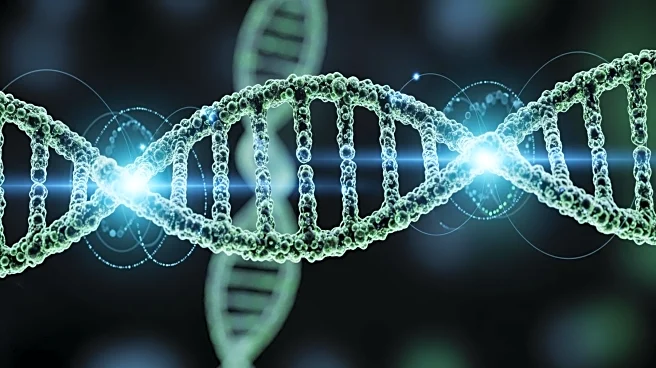What's Happening?
Recent research has investigated the therapeutic potential of bacteriophage SSG23 against Shigella sonnei biofilms and its effects in BALB/c mice. The study involved isolating the phage from water samples and testing its efficacy against Shigella strains
resistant to various antibiotics. The phage demonstrated significant reduction in bacterial colonization and preservation of intestinal tissue integrity in mice. The research highlights the phage's ability to degrade biofilms and its potential as a treatment for infections caused by antibiotic-resistant bacteria.
Why It's Important?
The study is significant as it addresses the growing concern of antibiotic resistance, particularly in bacteria like Shigella sonnei. Phage therapy offers a promising alternative to traditional antibiotics, potentially reducing the prevalence of resistant strains. This research could lead to new treatments for bacterial infections, benefiting public health and reducing healthcare costs associated with antibiotic resistance. The findings may also encourage further exploration of phage therapy in clinical settings.
What's Next?
Further research is needed to understand the full potential of phage therapy in human applications. Clinical trials could be conducted to assess the safety and efficacy of phage SSG23 in treating Shigella infections in humans. Additionally, exploring the genetic and molecular mechanisms of phage action could enhance its therapeutic applications. Collaboration between researchers and healthcare providers may accelerate the development of phage-based treatments.
Beyond the Headlines
The ethical implications of using phage therapy, such as its impact on microbial ecosystems and potential resistance development, should be considered. Long-term studies could provide insights into the sustainability and environmental effects of widespread phage use. The cultural acceptance of phage therapy as a mainstream treatment option may also influence its adoption in healthcare.















